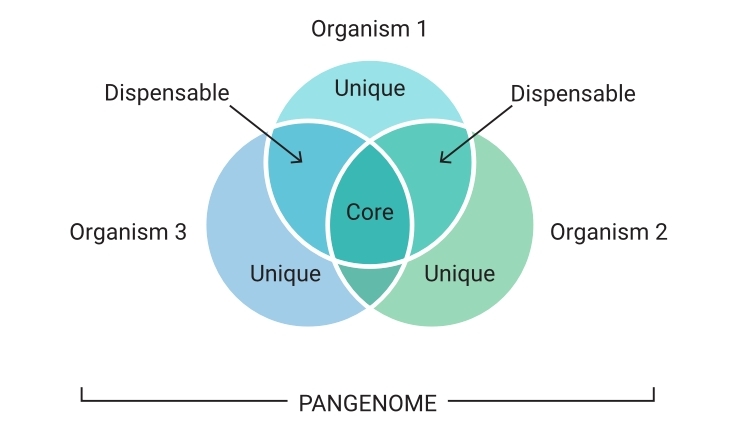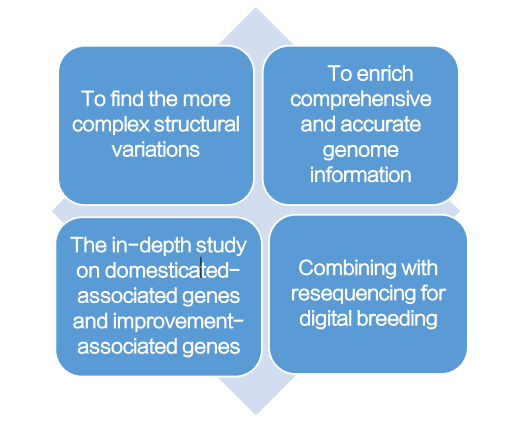Plant & Animal Pan-Genome
Plant & Animal Pan-Genome Introduction
As research develops, the single species reference genome has reached its limitations in the detection of genetic variation. This has directly led to the concept of the pan-genome.
A species can be described by its “pan-genome” (pan, from the Greek word π αν, meaning whole), which includes a core genome, containing genes present in all genomes, and a dispensable (variable/accessory) genome composed of genes absent from one or more genes that are unique to each genome.[1]
The construction of pan-genome using long-read sequencing technology has been widely used in the study of animal and plant genomics to evaluate intra-species genetic diversity in a more comprehensive way. It also aids in the exploration of cross-species gene exchange, domestication, and improvement processes.

Figure 1. Example of a pan-genome. [2]
Pan-genome research application features:

(The above steps are for reference only, Pan-genomic analysis and construction currently require customized evaluation)
Resources
References
[1] Tettelin, Hervé et al. “Genome analysis of multiple pathogenic isolates of Streptococcus agalactiae: implications for the microbial "pan-genome".” Proceedings of the National Academy of Sciences of the United States of America vol. 102,39 (2005)
[2] https://www.pacb.com/blog/sequencing-101-looking-beyond-the-single-reference-genome-to-a-pangenome-for-every-species/